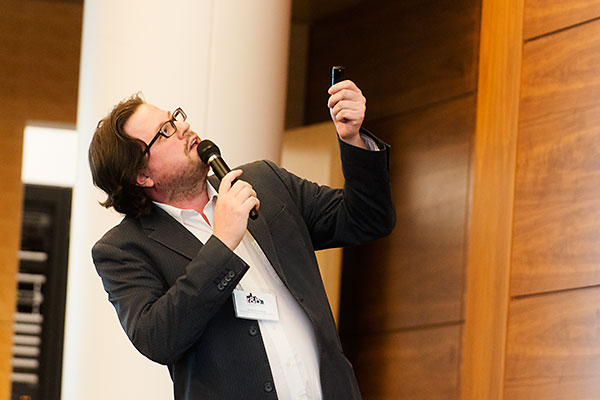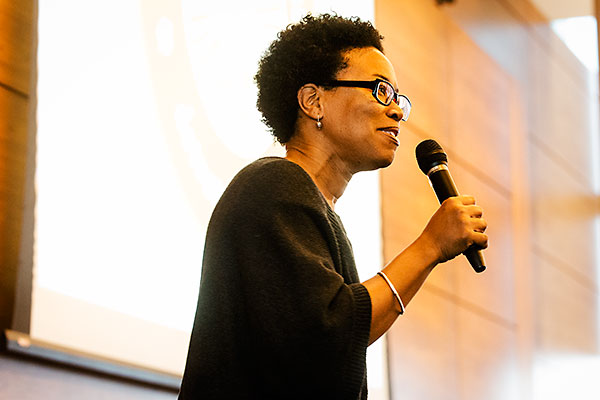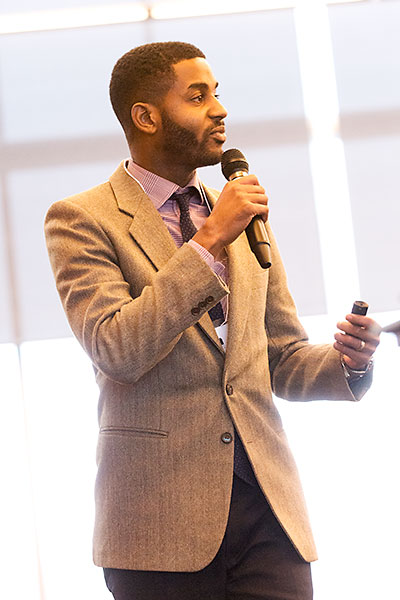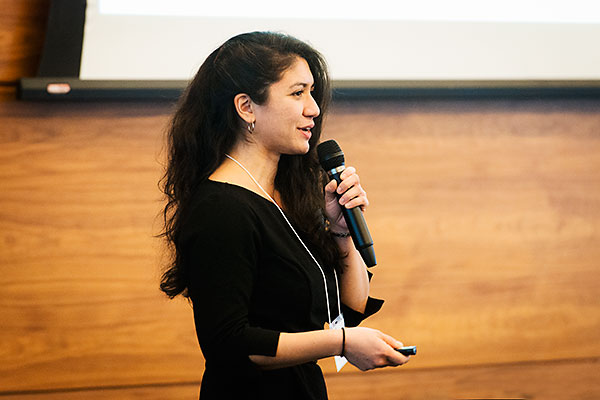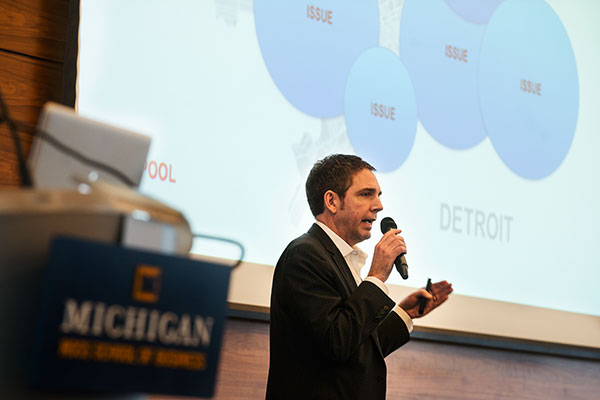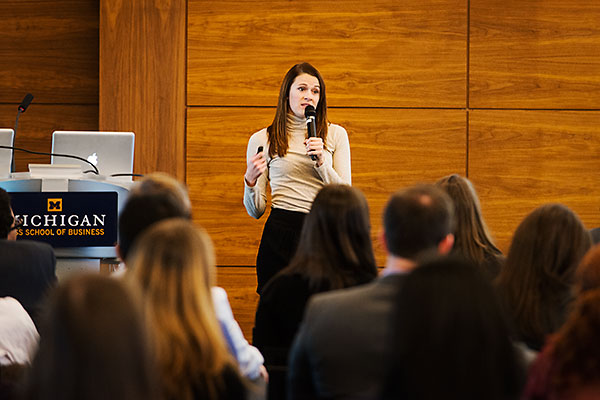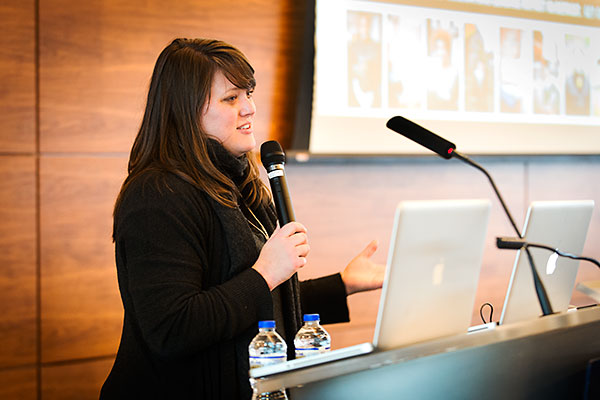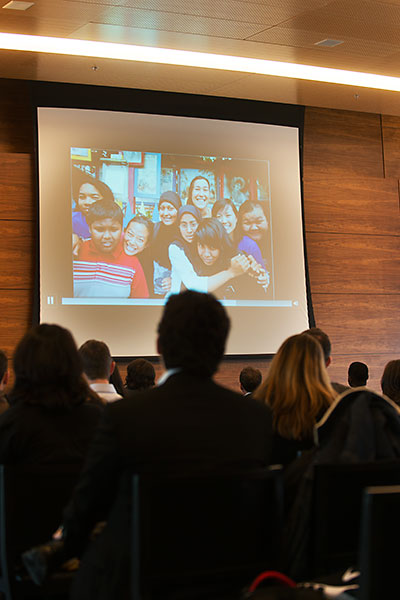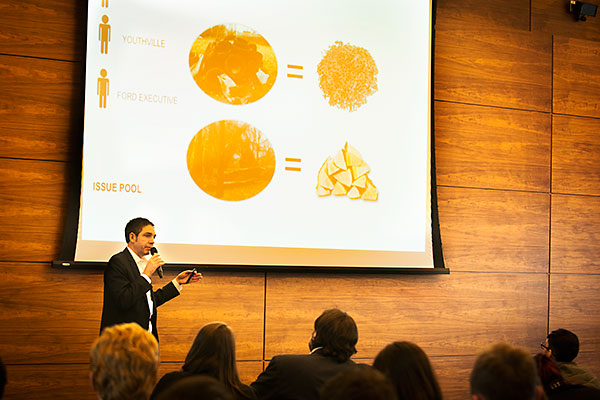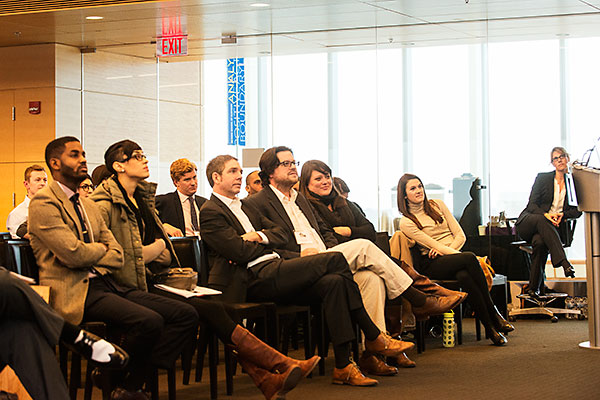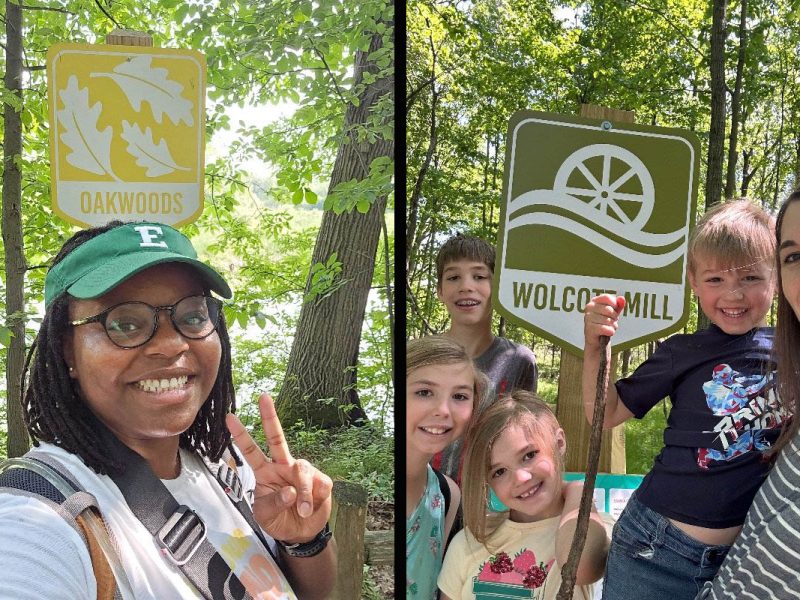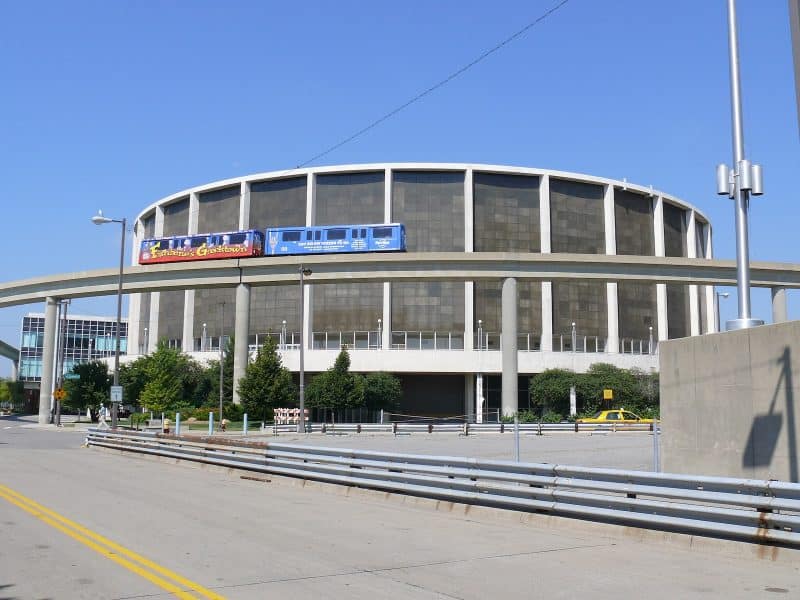Growing bold ideas for Detroit’s future
At this year's Idealab at the University of Michigan's Ross School of Business, six Detroit innovators were invited to Ann Arbor to share radical ideas for the future of the city. Matthew Lewis was there with his notebook, Doug Coombe with his camera.
For the fourth consecutive year, a group of Detroiters headed to the University of Michigan’s Ross School of Business to present at IdeaLab, a session of the B-school’s annual Revitalization and Business Conference that encourages Ross students to consider what role they can play in Detroit’s future. This year’s theme: Growth and Regrowth.
It was just two years ago that the Urban Innovation Exchange was formally announced at IdeaLab, and in that time, UIX has become an impressive collection of stories of the people and projects changing Detroit for the better. This year, six Detroit innovators were invited to Ann Arbor to share with Ross students one radical idea each for the future of Detroit. They were:
Bethany Betzler, Artifact Maker Society & Detroit Creative Corridor Center; Jim Boyle, New Economy Initiative & Public Pool; Alessandra Carreon, Ford Motor Company & Better Block Detroit; Francis Grunow, New Solutions Group & Corridors Alliance; Sebastian Jackson, The Social Club Grooming Company; Wayne Ramocan, Osborn Neighborhood Alliance; and Sarida Scott Montgomery, CDAD & Good People Popcorn.
Here’s an accounting of the ideas presented on Friday afternoon.
Jim Boyle – “The Issue Pool”
Boyle, senior program officer at the New Economy Initiative for Southeast Michigan, is a man who likes pools–or at least metaphoric ones. Boyle is a founding member of Public Pool, an art cooperative in Hamtramck designed to create and support a wide range of contemporary art experiences. For IdeaLab, Boyle put forward an idea that is something of an evolution of the concept of time banking-what he calls the “Issue Pool.” Essentially, the Issue Pool would be a democratic, crowdsourced medium for acting on big ideas. People would volunteer a piece of their time and expertise to the pool, and the community would vote on the issue to which to apply the pool’s collective might.
Bethany Betzler – “A coffee table made in Detroit can change the world.”
Betzler is the Director of the Artifact Makers Society, a group dedicated to fostering relationships between designers and maker/manufacturers in Detroit–the people who are currently making the products that will become the artifacts defining Detroit’s identity for generations. It is Betzler’s opinion that Americans have been communicating to the world that all we care about is goods and consumption. We should be communicating that we care about each other, she argues, and we can do this through local production and consumption. “When something is made locally, ethically, and sustainably,” says Betzler, “it benefits not only the maker, but the community in which it was made.” Artifacts being created by Detroit’s makers today will contribute to changing what Americans value, as well as create a new identity for the city of Detroit. Hence, a coffee table–or any product crafted in Detroit–can change the world.
Sarida Scott Montgomery – “Don’t boil the ocean. Start doing things well.”
Scott Montgomery is the Executive Director of the Community Development Advocates of Detroit, the trade association for nonprofit, community-based development organizations in the city. Her idea is simple. Sometimes the right idea is already in front of us–it just needs acting on. For example, when Scott Montgomery was an attorney for the City of Detroit, she heard constant complaints that the city needed a new blight ordinance, when, in reality, all it needed was for the existing ordinance to be enforced. She suggested we apply this thinking to our troubled school system. We need to acknowledge that education is a universal right and embrace the fact that education also takes place outside of the walls of schools and beyond the pages of books.
Francis Grunow – “Do development differently in Detroit.”
The lens for Grunow’s idea is what he calls “Detroit’s first and last neighborhood”–the lower Cass Corridor, one of the oldest (i.e. first) neighborhoods immediately outside of downtown and the last of those neighborhoods to be redeveloped. In recent decades, Detroit has undertaken a few redevelopment projects in the greater downtown area whose outcomes are questionable. Lower Cass is targeted to be the site of a new $650 million “Arena District,” and Grunow’s big idea is using this project as an opportunity to do the following to create a new paradigm for development in Detroit: value preservation, education, history and culture; build upon assets; and optimize the impact on local residents.
Wayne Ramocan – “Invest in people.”
Ramocan works in community development for the Osborn Neighborhood Alliance in Northeast Detroit, a group dedicated to making Osborn a community of choice for current and future residents. Ramocan sees opportunities in challenges. One such challenge is the fact that, according to the 2010 Census, only 22 percent of Detroiters ages 25 and up have “some college” education, and only 12.5 percent have achieved a bachelor degree or higher. Many would fail to see the opportunity in this, but Ramocan does because he’s seen the potential of people to grow through his work in Northeast Detroit. “Stop thinking about what to invest in and start thinking about who,” says Ramocan. The yield on investment will be greater.
Alessandra Carreon – “Detroit: America’s first net-zero waste city.”
Before moving to Detroit, Carreon lived in Seattle, a bubble in which she felt she could live sustainably. While there, she came to a mental crossroads: should she stay in the bubble or move somewhere where she could actively help shape the infrastructure for sustainable living? She took the road less traveled, choosing to relocate to Detroit, and that has made all the difference. Her big idea is to work together to shape Detroit into America’s first net-zero waste city that will redefine sustainable living for the rest of the country. “If we choose the same adventure,” says Carreon, “Detroit will be more fun and last a lot longer than we ever imagined.”
Sebastian Jackson – “Building an economy around de-and-reconstruction.”
Jackson owns the Social Club Grooming Company, a salon/barber shop in a storefront on the campus of Wayne State University. But the Social Club is much more than a place to get your hair cut. It strives to be a triple bottom line business. Jackson and his barbers compost 12 pounds of hair clippings per month in a local garden, and now they are remodeling the shop using reclaimed materials from an arsoned building in Detroit. The big idea? Deconstruct Detroit’s vacant homes and reuse the materials to rebuild businesses around town.
In the year between now and the next IdeaLab, lots of work will be done to bring great ideas to fruition in Detroit. But you don’t need to wait a year to learn about them. Keep following Model D and UIX for a steady diet of innovation in Detroit.
Matthew Lewis is a project editor for Model D.
Photos by Doug Coombe
